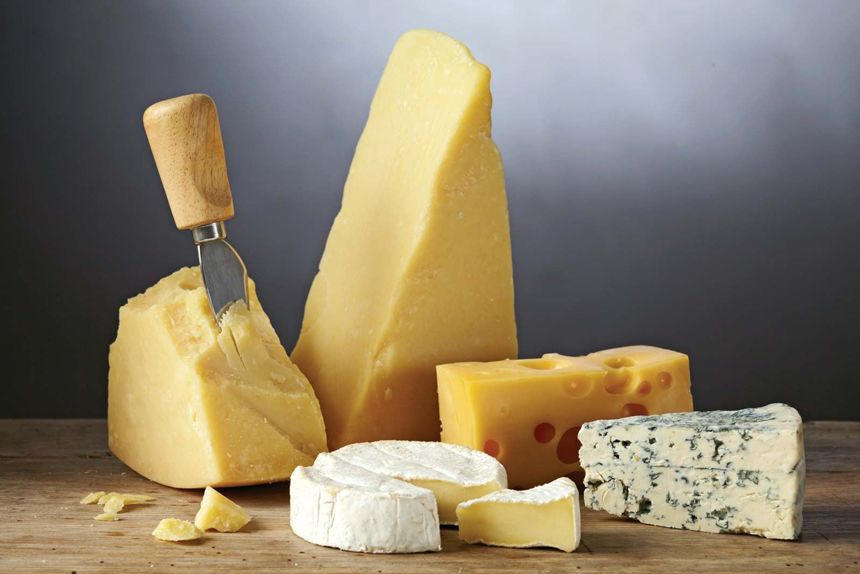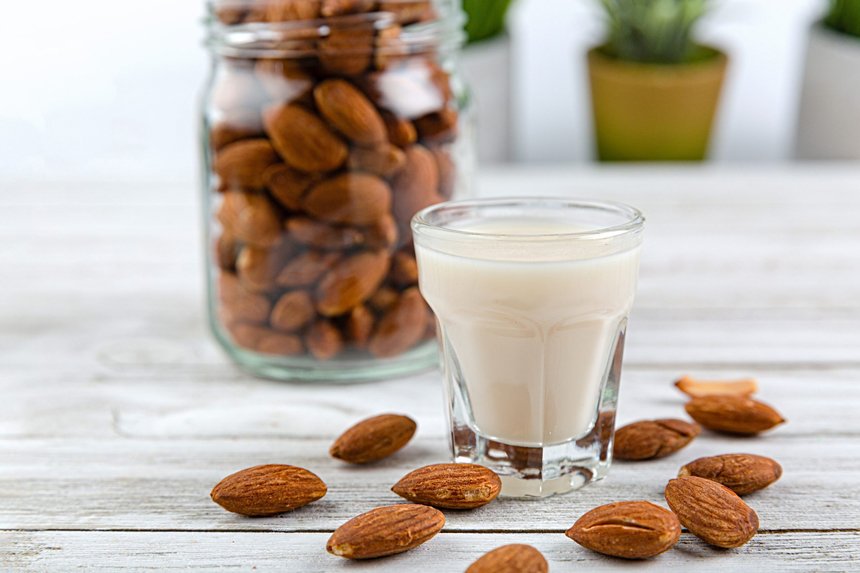Hard Cheeses

Aged cheeses like Swiss, Parmesan, and blue cheeses contain less lactose, making them easier on the digestive system for those with lactose intolerance. These cheeses offer a good source of calcium and protein, making them a valuable addition to a lactose-intolerant diet.
With less than 2 grams of lactose per ounce, these cheeses can provide a calcium boost without the discomfort. Including hard cheeses in your diet allows for various culinary uses, from simple snacks to elegant dishes, expanding the palate while managing lactose intolerance.
Almond and Other Plant Milk

While goat, sheep, and buffalo milk also contain lactose and might not alleviate symptoms, a variety of plant-based milk offers a delicious alternative. Almond milk, rich in magnesium and vitamin E, stands out for its health benefits. However, most plant milk does not naturally contain calcium, so fortified versions are crucial for a lactose intolerance diet.
Rice milk, known for its low saturated fat content and abundance of vitamin B12, and coconut milk, with its creamy texture and high saturated fat, provide variety. Though not perfect dairy substitutes in every recipe, they offer versatility for drinks and breakfast cereals. [5]





